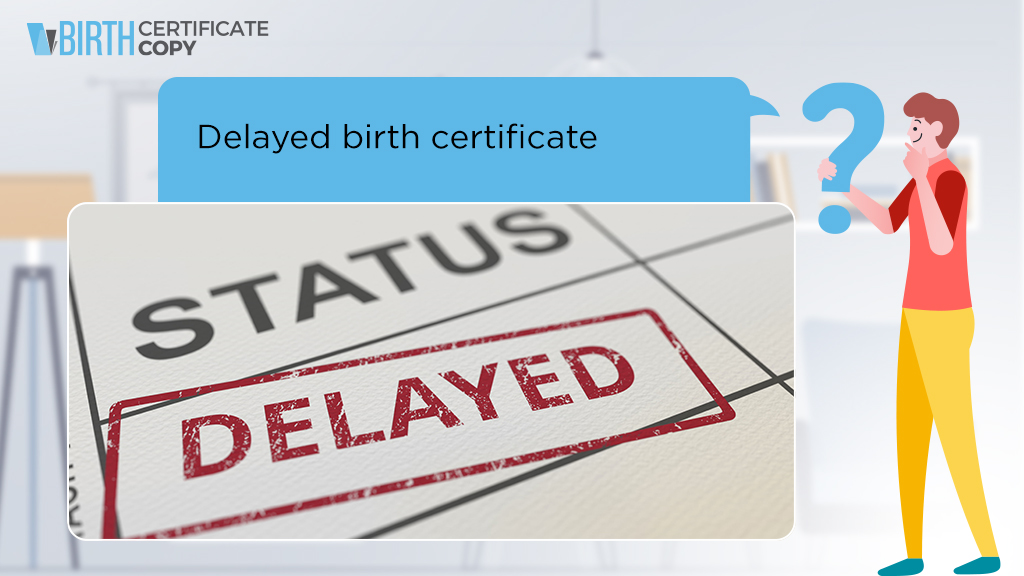Delayed Birth Certificate
The majority of U.S. states began formally filing birth records in the early 1900s. Ever since then, parents have been required to register the birth of a new baby with the state or county, within one year of the birth.
When a baby is born at a hospital or other facility, the parents are given a Certificate of Live Birth form, which they must fill out and submit to the state to register the baby’s birth and get a birth certificate.
However, home births still occur, and sometimes parents who give birth to their child at home neglect to register the birth within a year. When a birth certificate is filed more than a year after the birth, it is called a delayed birth certificate.
Individuals, especially senior citizens, may not even realize that their parents never registered their birth until they try to get a certified copy of their birth certificate to do things like apply for a passport or REAL ID.
Fortunately, a delayed birth certificate can be applied for at any time after a child’s first birthday, however, it will require some additional supporting documents as proof of the details of the birth.
How Do I Get a Delayed Birth Certificate?
The process to apply for a delayed birth certificate varies by state, however, it generally involves filling out a Delayed Certificate of Birth form and submitting it to the state where the birth occurred, along with supporting documents, an affidavit, and payment for the processing fees.
If you aren’t sure if you have a birth certificate or not, you can easily apply for a certified copy of your birth certificate online. If you have one, they will send a copy, which you should have on hand anyway. However, if no birth record exists, they will let you know, and you can start the process of applying for a delayed birth certificate.
You will need to provide evidence of the following, using at least two different documents:
- Your full name at birth (unless you were adopted or your name was legally changed as a child)
- Your place and date of birth
- Your mother’s full name (including maiden name) and place of birth
- Your father’s full name and place of birth (may not be necessary if your parents were not married at the time of your birth)
You can use any of the following documents as proof:
- Baptismal records
- School records
- Marriage license or certificate
- Your child’s birth certificate (with your name on it)
- Statement by doctor or midwife that attended your birth
- Hospital records (at birth or later)
- Doctor’s office records
- Census records
- Military discharge records
- Insurance documents
- Driver’s License
- Employment records
- Voter registration records
- U.S. passport
- U.S. Naturalization Certificate
Some states, like Virginia, also require the Delayed Certificate of Birth form to be notarized.
When your application has been processed and filed, you will be able to order certified copies of your birth certificate.

